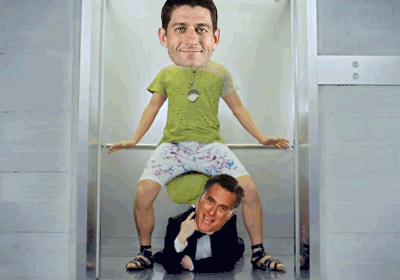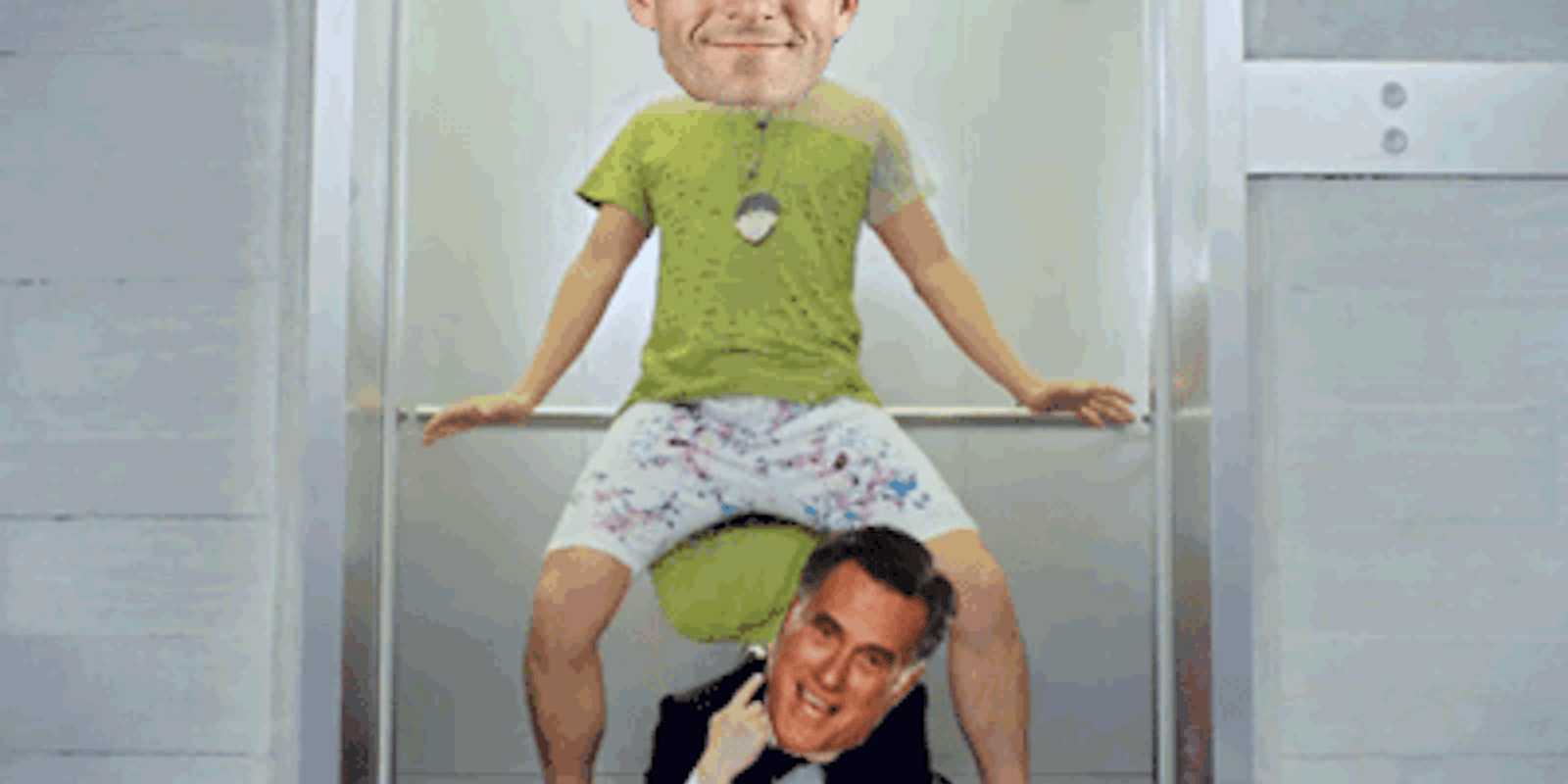This week, President Barack Obama hosted a live interview (an “Ask Me Anything” or AMA) on Reddit. A couple million people showed up to ask the president questions (about 23,000 of them) and read his answers. It was perhaps the biggest day in Reddit’s history.
***
We are (in the U.S. at least) deep in the midst of the political season.
And thanks to the Internet, it seems the season is sillier than ever. Former Republican vice presidential candidate Sarah Palin is bitching about being left out at the Republican national convention this week on Facebook. Obama is using YouTube to host his attack ads. Romney seems to be using the funniest man on Twitter’s opposition to target ads. An American Idol and a Celebrity Apprentice are exchanging political views on Twitter. And Samuel L. Jackson is confused by the fact that God’s plan apparently includes almost hitting the Republican National Convention with a hurricane but not quite.
But on the other hand, thank God we have the Internet to make this season sillier than ever. Fake Anne Romney has taken first-world problems to a whole new level. Romney and Ryan have been given the 50 Shades of Grey treatment, and the Internet has you covered for whatever strange political pairing your twisted little mind can think up. Obama’s appearance on Reddit was memed in seconds. But my personal favorite is this: the Republican presidential ticket getting down “Gangnam Style.”

If it seems like the GOP is bearing the brunt of the Internet’s snarky ire, just wait until the Democratic convention.
And that’s as it should be, as far as I’m concerned.
***
In Russia, the massively multiplayer online game eRepublik has the chance to inspire a new revolution, a kind of cloud democracy.
Despite Vladimir Putin’s stranglehold on Russian democracy, a new generation of Internet-savvy citizens are rising, and they are using the Internet to forward democracy to a degree that hasn’t been seen since Gorbachev left the Kremlin.
Even before their introduction to eRepublik, the founders of the new People’s Alliance party used blogs to publish criticism of the government and created sites that track spending of government funds and campaign promises kept and broken.
But these efforts are just the beginning. Inspired by eRepublik, some founders of the party, Leonid Volkov and Fyodor Krasheninnikov, have written a manifesto, Cloud Democracy, which outlines how the Internet and game dynamics could be harnessed to fix their representative government.
An electronic voting system could be accountable and transparent, they argue. Government metrics and data could be published in real time. Likewise, trust in politicians could be measured in real time as well and they could lose their seat if confidence fell below a certain threshold—instantaneously. You could delegate your vote on issues to an expert you trust.
***
In the midst of the silly season in an election campaign that is now just so much theater, that one moment when the president did an AMA stuck out at me as something more. It reminded me of another historic event, more than a century ago.
On Jan. 1, 1907, President Theodore Roosevelt stood in the Blue Room of the White House and shook the hands of 8,510 people, setting a world record that would stand for 70 years.
“All citizens who are sober, washed, and free of bodily advertising” were invited to the New Year’s Day reception.
The American presidency has changed a great deal since the early days of the Republic. In fact, Roosevelt was himself the first president to be protected by the Secret Service. But as the world record set some five years into the Secret Service’s new watch illustrates, that protection—and therefore the distance between the government and the governed—was far less than it is today.
Today, democracy—always poised in a fragile balance somewhere between autocracy, oligarchy, mob-rule, and utter chaos—faces immense challenges. In the president’s own AMA, one of the 10 answers he did give addressed Super PACs, which allow people to circumvent limits on political contributions with little or no oversight or transparency. They funnel so much money into elections that, in the words of the president, they “fundamentally threaten to overwhelm the political process over the long run and drown out the voices of ordinary citizens.”
But against those challenges, we have the AMA itself. The most powerful man in the world came face to face with those whose lives his decisions affect. He may have dodged questions, responded with self-serving campaign baloney, or worse. But these were not handpicked supporters; these were people whose only qualifications were that they had an Internet connection. Many of them probably weren’t even sober or showered.
And that is only the beginning. The assault on democracy today is unprecedented. It is far beyond anything that the idealists in Roosevelt’s America ever had to contend with. But even despite all that, the end of democracy is not inevitable. As our friends in Russia remind us, as the enemies of democracy have grown in power and sophistication, so have our weapons to combat them.
Whether you agree with any of Volkov and Krasheninnikov’s ideas or not, the underlying, implicit point is valid. We have only barely scratched the surface of the Internet for its potential to make democracy work, and work better—in any country.
Photo via GIF Hound/Tumblr
